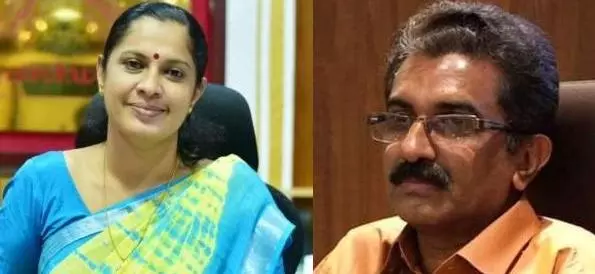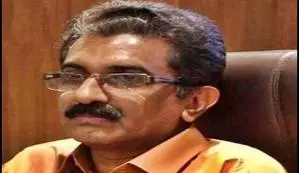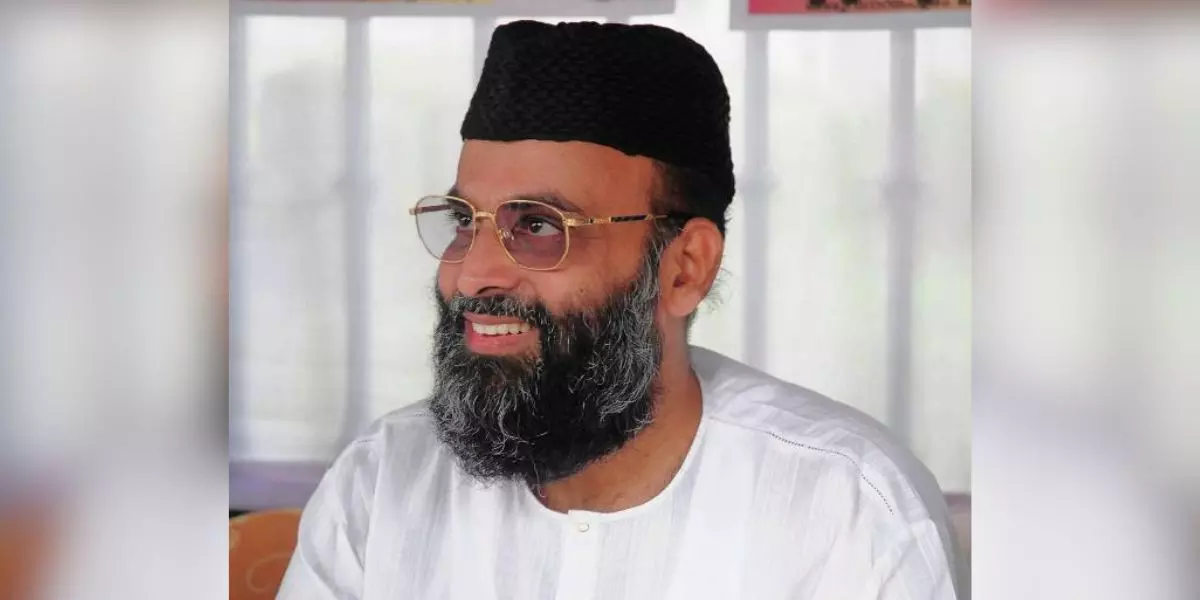
Drama in arrest: 'differential' mode of justice
text_fieldsCPI(M) leader and Kannur district panchayat president P P Divya and Additional District Magistrate Naveen Babu (file photos)
The events that took place on Tuesday in connection with the arrest of the former president of Kannur district panchayat in Kerala and CPM leader PP Divya in the case of the suicide of Kannur Additional District Magistrate (ADM) Naveen Babu, had kept the Kerala community in animated suspense for quite a few days. It was a series of events that impinged on all the elements of state like bureaucratic processes, law enforcement, crime, police, judiciary, political parties, administration, opposition etc., although not all to the same extent or degree. What will come in prominent display in an evaluation of right and wrong will be the failings of the rule of law. PP Divya came uninvited to the farewell party given by his colleagues to ADM Naveen Babu, who was relocating and made disparaging accusations of corruption against him though in an oblique manner. The next morning, Naveen Babu was found hanging in his quarters. When it was confirmed that the incident was a suicide, it was an easy conclusion that Divya's hurtful remarks led to it. The town police registered a case of unnatural death and charged her on Monday. Meanwhile, PP Divya filed an anticipatory bail application on Friday (October 18); It was registered on Monday the 21st and the matter was heard on the 24th which was then adjourned for judgment on the 29th. On Tuesday, the 29th, the verdict was given denying anticipatory bail. Even when Divya had to be arrested which was under intense public pressure, the police made dramatic moves to avoid media attention.
The terms and conditions of anticipatory bail are matters of law. However, the question remains as to what prevented the police from arresting her for 11 days from the time the police registered the case on Thursday, October 17 until the decision on anticipatory bail application on the 29th. The arrest was not made on the basis of court order. Considering the fact that the prosecution duly opposed the anticipatory bail plea and the court did not grant interim relief, it must be assumed that the police had been treating the accused very leniently. Naturally, as the accused is a prominent district leader of the ruling party, the action is sure to be alleged as under political interference.
CPM's first reaction was with a preconceived notion that the party members would also be doing the right thing. There was an attempt to claim that Divya spoke against corruption as a public figure and said some things unintentionally. The party machinery also tried to establish Naveen Babu as one who takes bribe. It is true that the party unit in Pathanamthitta adopted a different stand. It became another example of CPM's inability to look at things on the criteria of right and wrong and morality and how party bias affects political parties. The anti-corruption contention itself has weakened as ADM's track record as a civil servant has become clear. It is evident that the matter was made an emotional issue by some pressure forces on the part of the petitioner and not through signs of corruption by the official. The police action revealed that the measures taken by the police in connection with the arrest were thanks to the political influence of the accused. The pertinent question here is whether these 'security standards' would have been followed if an accused in a similar case had been a commoner instead of Divya, a former district panchayat president.
An arrest following denial of anticipatory bail that happened earlier in Kerala may be recalled here. On August 17, 2010, there was a joint operation by the Kerala-Karnataka Police in Anwarssery, Kollam for the arrest of Abdul Nasar Ma'dani. Ma'dani, the 31st accused in the 2008 Bengaluru blast case, was arrested by the Kerala Police under heavy police guard deployed fearing law and order problems and handed him over to the Karnataka Police. In the meantime, the Karnataka High Court had rejected Ma'dani's anticipatory bail plea and gave a nod for his arrest. Although a bail petition was filed in the Supreme Court, the then VS Achuthanandan government was not ready to delay the arrest because of it. None of the panic expressed by the police and the media about the breach of peace, except for some sloganeering, came from Ma'dani's party workers. He was going to surrender but was stopped on the way and arrested. The Supreme Court did not consider the anticipatory bail application as the arrest had already happened. Even after 13 years, Ma'dani is still on conditional bail awaiting trial. How ironic is that justice is applied differently to party members and 'mere citizens' from a Leftist government that clamours for rights and says that the law must take its own course and everyone is supposed to be equal before the law!

























